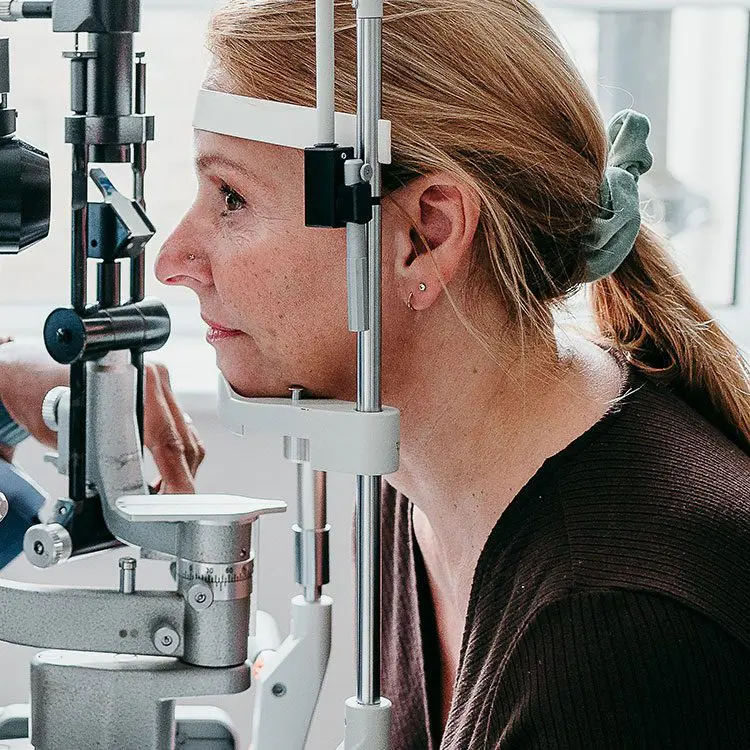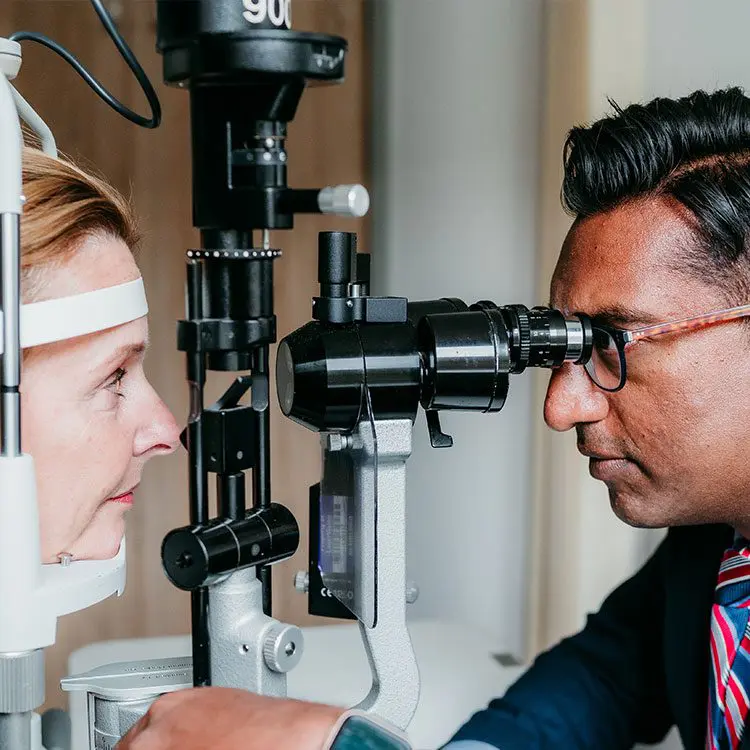




Posterior Capsule Opacification (PCO) is a relatively common occurrence after cataract or Refractive Lens Exchange (RLE) surgery. It occurs when the back of the implanted lens thickens and clouds. Thickening of the capsule means that light is less able to travel through to the retina (the light sensitive layer at the back of your eye), reducing the quality of sight. Clinical research suggests that PCO occurs in 10 – 20 % of patients and is most common within the first 2 years of surgery.

What are the Symptoms?
What are the Causes?
During cataract surgery, your doctor makes a circular opening in the front facing capsule of the lens in order to remove the nucleus. The new intraocular lens is injected through this opening and is held in a secure position by the remaining capsule. In time, this capsule will shrink and wrap itself closely to the lens. Living cells in the capsule can form a new sheet of cells that frost the back surface of the lens. This is called posterior capsular opacification (PCO).



What is the Diagnosis?
Laser Vision performs Nd-Yag laser capsulotomy; an established method of treatment for Posterior Capsule Opacification (PCO). Your doctor will use low-energy pulses of laser to vaporise the layer of cells that are causing the lens to be clouded. Patients often report that their vision is immediately brighter and it will continue to improve as the dilating eye drops instilled wear off.


Treatment Options
Choosing the right vision correction clinic for your surgery is paramount. This is a life changing procedure after all, and you need to have complete trust in your surgeon and care team of professionals.
Our Technology
We invest in the latest equipment hand chosen by our surgeons, so that we can deliver outstanding results with the safest surgery possible.